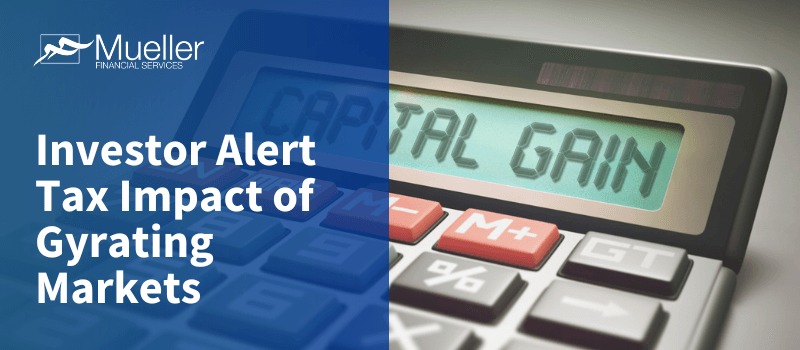
The Illinois Fair Tax Proposal and its Impact on Illinois Residents
By Mueller Financial Services, October 13, 2020
The Illinois “Fair Tax” is a significant proposal to change the existing personal income tax structure from
one flat rate (currently, 4.95%) to a series of graduated rates. This legislation has the power to impact all
Illinois taxpaying residents.
According to the Illinois Senate Joint Resolution Constitutional Amendment Number 1, the explanation
of the proposed amendment is as follows:
“The proposed amendment grants the State authority to impose higher income tax rates on higher
income levels, which is how the federal government and a majority of other states do it. The
amendment would remove the portion of the Revenue Article of the Illinois Constitution that is
sometimes referred to as the ‘flat tax,’ that requires all taxes on income to be at the same rate. The
amendment does not itself change tax rates. It gives the State the ability to impose higher tax rates on
those with higher income levels and lower income tax rates on those with middle or lower income
levels. You are asked to decide whether the proposed amendment should become a part of the Illinois
Constitution.”
If the Amendment passes, the General Assembly has proposed the initial new tax rates as follows (but
again, these rates could easily and repeatedly be changed):
“(35 ILCS 5/201.1 new)
Sec. 201.1. Tax rates. In the case of an individual, trust, or estate, for taxable years beginning on or
after January 1, 2021, the amount of the tax imposed by subsection (a) of Section 201 of this Act shall be
determined according to the following tax rate structure:
1. for taxpayers who do not file a joint return and have a net income of $750,000 or less:
- 4.75% of the portion of the taxpayer’s net income that does not exceed $10,000;
- 4.9% of the portion of the taxpayer’s net income that exceeds $10,000 but does not exceed
$100,000; - 4.95% of the portion of the taxpayer’s net income that exceeds $100,000 but does not exceed
$250,000; - 7.75% of the portion of the taxpayer’s net income that exceeds $250,000 but does not exceed
$350,000; and - 7.85% of the portion of the taxpayer’s net income that exceeds $350,000 but does not exceed
$750,000; and
2. for taxpayers who do not file a joint return and have a net income that exceeds $750,000, 7.99% of
the taxpayer’s net income;
3. for taxpayers who file a joint return and have a net income of $1,000,000 or less:
- 4.75% of the portion of the taxpayer’s net income that does not exceed $10,000;
- 4.9% of the portion of the taxpayer’s net income that exceeds $10,000 but does not exceed
$100,000; - 4.95% of the portion of the taxpayer’s net income that exceeds $100,000 but does not exceed
$250,000; - 7.75% of the portion of the taxpayer’s net income that exceeds $250,000 but does not exceed
$500,000; and - 7.85% of the portion of the taxpayer’s net income that exceeds $500,000 but does not exceed
$1,000,000; and
4. for taxpayers who file a joint return and have a net income of more than $1,000,000, 7.99% of the
taxpayer’s net income.”
Illinois has developed an online calculator to quantify the impact of the Fair Tax on taxpayers.
Mueller Financial Services works closely with tax professionals who have a thorough understanding of the
federal, state, and local tax laws which are integrated into our wealth management process.
Contact Us if you have any questions about how this proposed amendment could change your tax
situation or you would like to review your current income and tax situation.
This information is not intended to be a substitute for specific individualized tax advice. We suggest that you discuss your specific tax issues with a qualified tax advisor.
TaxRelated Insights

May 30, 2023
What U.S. Expats Need to Know About Estate Planning
ShareAt least 12% of Americans have thought about living abroad in retirement, according to a study by the Aegon Center …
Read More navigate_next
May 25, 2023
Investor Alert Tax Impact of Gyrating Markets
ShareThe stock markets have experienced significant volatility over the last year, causing many investors to realize some significant gains — …
Read More navigate_next